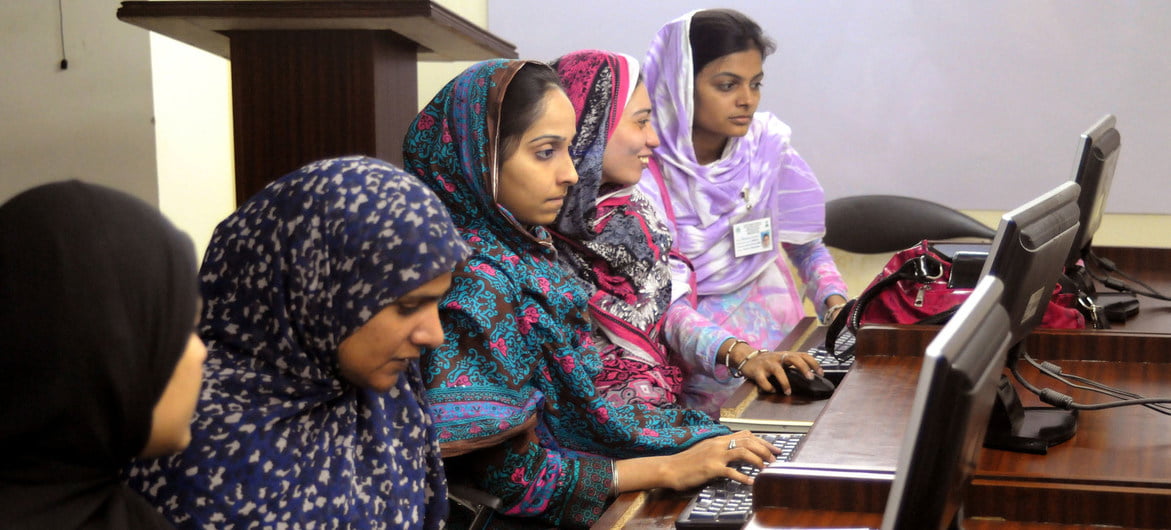“Women are far from having an equal voice to men”, spelled out the DESA chief. “And, in every region of the world, women are still subjected to various forms of violence and harmful practices”.
Introducing the 2020 edition of The World’s Women: Trends and Statistics, Liu Zhenmin, chief of the UN’s economic and social affairs department (DESA), said that over the last two decades, “attitudes of discrimination are slowly changing” and women’s lives have improved with regard to education, early marriage, childbearing and maternal mortality, all while progress has stagnated in other areas.
Beijing still pending
Overall, progress continues to fall far short of what Member States committed themselves to, at the 1995 Fourth World Conference on Women.
“Twenty-five years since the adoption of the Beijing Declaration and Platform for Action, progress towards equal power and equal rights for women remains elusive”, said UN Secretary-General António Guterres.
“No country has achieved gender equality”.
To effectively measure progress in that regard, reliable, timely and disaggregated, data are critically needed and closing data gaps requires regular collection and use of gender statistics.
Pushing a boulder uphill
Mr. Liu pointed out that while the coronavirus pandemic is having “devastating social and economic impacts” across the world, women are fighting “on the front lines…in healthcare settings, in home care, in the family and in the public sphere”.
With less internet access, particularly in developing regions, women also face difficulties maintaining valuable personal connections and carrying on day-to-day activities during lockdowns.
“Many may also have been trapped in unsafe environments…and at risk of experiencing intimate partner violence”, Mr. Liu stated.
Moreover, he pointed out that women face reduced access to sexual and reproductive health services; and need more time to care for the elderly, sick and children, including home-based education; adding that they are also at higher risk of infection than men in the workplace.
Glass ceiling intact
In terms of power and decision making, World’s Women 2020 revealed that last year, women held only 28 per cent of managerial positions globally – almost the same proportion as in 1995.
And only 18 per cent of enterprises surveyed had a female Chief Executive Officer in 2020.
Among Fortune 500 corporate rankings, only 7.4 per cent, or 37 CEOs, were women.
In political life, while women’s representation in parliaments worldwide has more than doubled globally, it has yet to cross the 25 per cent barrier of seats and although representation among cabinet ministers has quadrupled over the last 25 years, it remains at 22 per cent, well below parity.
Call to action
Mr. Liu called on all countries to “accelerate efforts” in empowering women and girls, towards improving data gaps in covering key gender topics.
“Timeliness and comparability of data over time and across countries, need to be improved, and data disaggregation and dissemination by age, sex, location and other key variables, need to become a priority in order to fully measure and address intersecting inequalities, respond to crises, and ensure gender equality by 2030”, he upheld.



